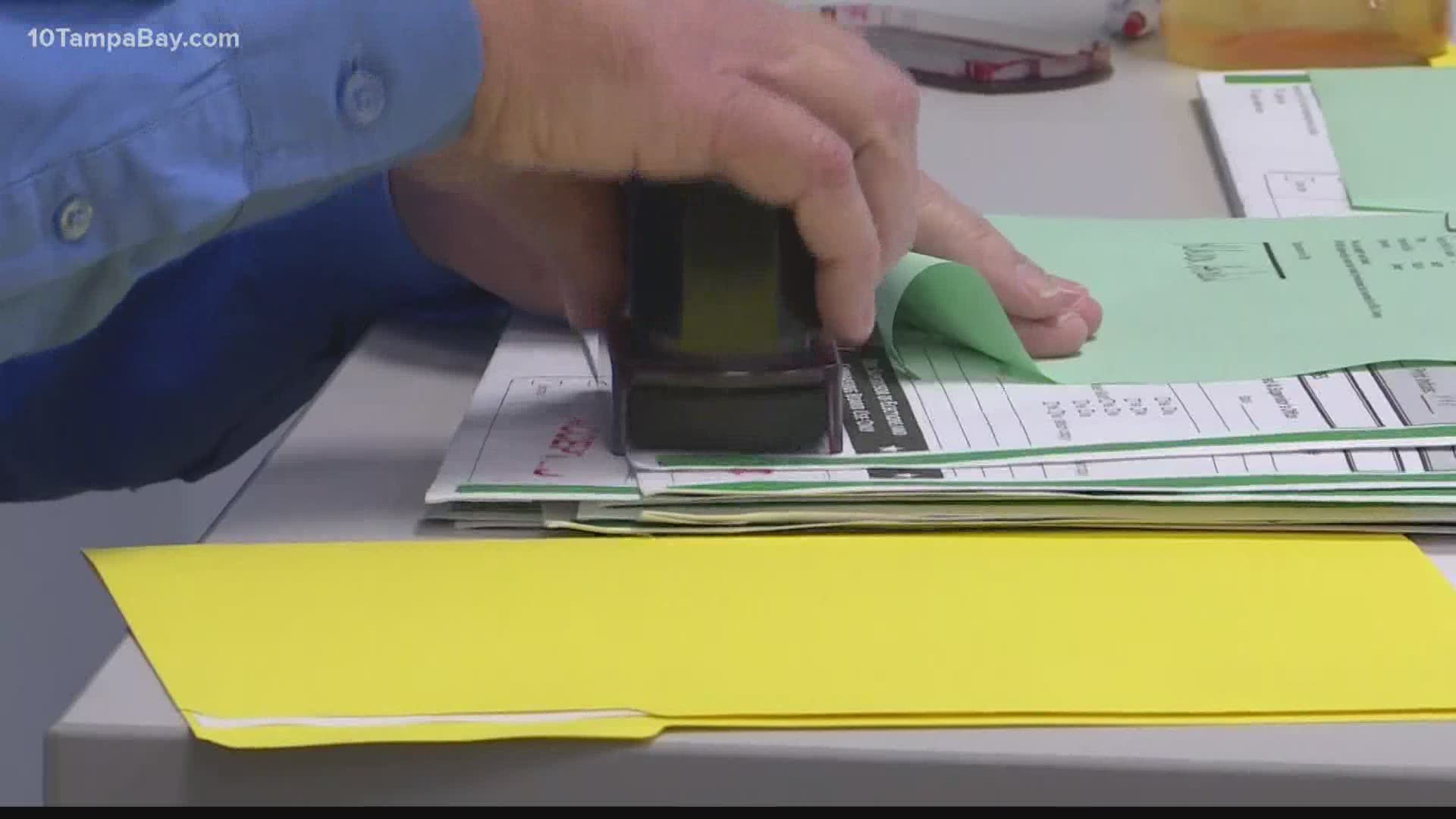TAMPA, Fla. — Experts say the goal of transparency in elections is to ensure confidence and integrity in the process.
The level of openness, though, depends on the state; and in Florida, even the county.
When it comes to processing a mail ballot or counting any ballots, each county must allow observers from political parties or those representing candidates.
Some counties allow members of the public to observe that process, but others do not.
Hillsborough County Supervisor of Elections Craig Latimer says there is 24/7 video surveillance in addition to other checks and balances like ballot auditing, but logistically it would not be ideal for his operation.
“We’re in a really controlled environment here. I can't imagine the distractions that would take place if you had people, you know, roaming around. And, quite frankly, our tabulation room is not that big,” he said.
Polk County Supervisor of Elections Lori Edwards says if a ballot is being scanned, the process is open to all.
“Any observer has the opportunity to observe, but not interfere and not get close enough that they would ever be able to touch a ballot or a piece of equipment,” she said.
Another critical part of the ballot certification process is canvassing.
Canvassing boards are made up of three members. It typically involves the supervisor of elections, county court judge and chair of the county commission.
They have the all-important task of determining whether a ballot must be rejected.
“Every member of the canvas board ultimately answers only to the voters of their county. So, they are there on behalf of the voters, and they are beholden only to the voters,” said Edwards.
Canvassing board meeting are open to every member of the public. The COVID-19 pandemic has caused some counties to adjust where they meet and how they meet. Other counties, like Miami-Dade, are live-streaming the meetings for the public to view.
“There's no reason that technology can't be leveraged to literally put eyes on every stage of the process,” said Professor Rebecca Green.
Green is the co-director of the Election Law Program at William & Mary. Prior to the election, she said one of the things she would be watching was transparency and how states used technology in the process.
She believes the process should catch up with technology.
“Particularly in a highly-charged partisan environment, transparency is really the only cure in terms of settling anxieties about whether the election is fair,” she said.
Supervisor Latimer questions introducing live webcams to any part of the process.
“I think that what that does is just leaves it wide open for somebody to manipulate that and put it out there on social media. And that's just going to do nothing but continue to erode confidence in the elections, you know, that the people have,” he said.
Supervisor Edwards said she would support it and thinks it could be helpful to ensuring voter confidence. She said it would allow voters to understand the entire process.
“I think openness and transparency, as long as we're always protecting voter privacy, we're always keeping the ballots in the equipment secure,” she said.
Canvassing boards must certify the first unofficial results and send them to the state by noon on Nov. 7. Military and overseas ballots have 10 days after the election to be returned to supervisors of elections. The official results from the 2020 General Election are due to the state on Nov. 15.
What other people are reading right now:
- 2020 Election Results | Get live results from 10 Tampa Bay
- How the Electoral College will decide who will be the next president
- Look up! During the next few nights, you might see a fireball
- DOJ Convicted rapist caught in Florida after assuming false identity for more than 40 years
- Election observer says no evidence for President Trump's fraud claims
- Biden urges calm, Trump makes false claims about vote counts
►Breaking news and weather alerts: Get the free 10 Tampa Bay app
►Stay In the Know! Sign up now for the Brightside Blend Newsletter

